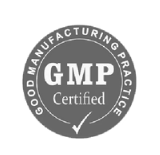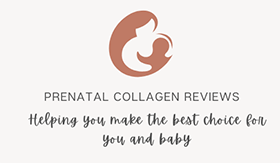PrenatalCollagenRatings.com is an advertising-supported site. Our editorial expenses are partially offset by commissions from the brands listed below. Visit our Disclosure Page for details
How We Rate
There are numerous collagen products available on the market, but their effectiveness and ingredient labels don’t always match up. Many of the most popular collagen supplements include a number of unnecessary and downright harmful ingredients. Not to mention, some don’t even allow you to absorb and reap the benefits of collagen!
When you’re TTC, pregnant, or breastfeeding, your collagen supplement should only include the cleanest and highest quality ingredients for peace of mind and the best nutrition. You and your future little one’s health depend on it!
Here’s exactly what to look for (and avoid) in your prenatal collagen supplement:
Formula & Serving Size
Collagen pills or collagen powder? Which is better?
When it comes to taking your daily dose of collagen, one scoop of powder is much easier than swallowing 6 capsules. If you’re already taking a daily prenatal vitamin, it helps to have a powder form of collagen that you can easily stir into your morning coffee or a glass of water.
Feeling nauseous from morning sickness? A tasteless, odorless, and non-clumping collagen powder is a necessity for making it a daily habit. Only a high-quality formula ticks all of those boxes!
Sourcing
Collagen can come from any number of sources, and not all of them stack up the same in terms of effectiveness. Look at the label to make sure your collagen powder is bovine-derived, rather than chicken or marine-based. The reason? As mammals, we’re genetically closer to cows than fish, for example. This means that the type of collagen present is more closely aligned with our bodies, and is also easier to absorb. Even better? Look for collagen that’s sourced from grass-fed cows for the best quality.
Bioavailability
If you can’t easily absorb your collagen, that’s a problem! A lot of supplements on the market come in a form that your body can’t use. Check to make sure your collagen powder contains “hydrolyzed collagen peptides”. This means that the collagen proteins have been broken down and are ready for your body to easily digest and absorb them. As we mentioned above, the source of your collagen can also play a role in your body’s ability to absorb and use collagen.
You also want to make sure you’re getting a diverse amino acid profile:
- Histidine
- Isoleucine
- Leucine
- Lysine
- Methionine
- Phenylalanine
- Tryptophan
- Threonine
- Valine
There are 20 different amino acids but your body can’t make the 9 essential amino acids and these have to come from your diet (aka animal-based foods). A high-quality collagen supplement is a perfect way to get all (or most) of them at once – every day!
Ingredient List
Collagen supplements often include dozens of questionable additives and filler ingredients that mom and baby don’t need. Since supplements aren’t regulated by the FDA before coming to market, you never know what you’re going to get!
Here are the ingredients to look out for:
- Allergens: Collagen supplements may include hidden sources of common allergens like soy, egg, wheat, peanuts, or shellfish. On the label, this looks like soy fillers or dairy preservatives. Before you buy, confirm the packaging says “gluten-free”, “soy-free, or “dairy-free”.
- Artificial sweeteners: Unsweetened is the way to go, but many collagen products cram in extra ingredients, whether they’re sweetened or sugar-free. Not only are some of these ingredients and sugar replacements harmful, but they also have a bitter or metallic taste that can make morning sickness worse.
- Natural flavors: Spoiler, there’s nothing natural about them. Typically these are ingredients that come from natural food sources, but then get enhanced in a lab. Plus, there’s little to no rules around what “natural flavors” means, so it’s best to skip them in your supplements altogether!
- Color additives: You don’t need colors in your collagen! Color additives are often found in a lot of supplements, and the most common are dyes like Red 40, Yellow 5, and Yellow 6. These come from synthetic ingredients that studies have shown can result in allergic reactions and even the development of cancer.
- Chemicals: Another reminder to take collagen from grass-fed cows. Otherwise, you might be getting all the GMOs (genetically modified organisms), growth hormones, and antibiotics that are fed to cows and could get into your supplements from cross-contamination. Yuck!
- Hyaluronic Acid: You might recognize this as an ingredient in your skincare routine, but it’s also found in collagen supplements. Its role is to help improve skin hydration and joint mobility, but for expecting mommas, it doesn’t need to be in your daily diet or your collagen powder.
- Vitamins: This may seem surprising, but it’s true! Some collagen supplements add vitamins like A or C to the mix. If you’re already taking your prenatal, these additional vitamins lead to an overabundance of nutrients that can actually be harmful to your body, especially when it comes to fat-soluble vitamins A, D, E, and K.
Manufacturing Practices
Last and certainly not least, quality collagen powder comes from a facility that has safety, cleanliness, and quality standards in mind. How do you know? Look for a label or seal that reads “GMP Certified”. The cGMP seal will look something like this:

GMP stands for “Good Manufacturing Practices” and this means that a facility is doing regular monitoring and looks out for any product issues that might impact you.
